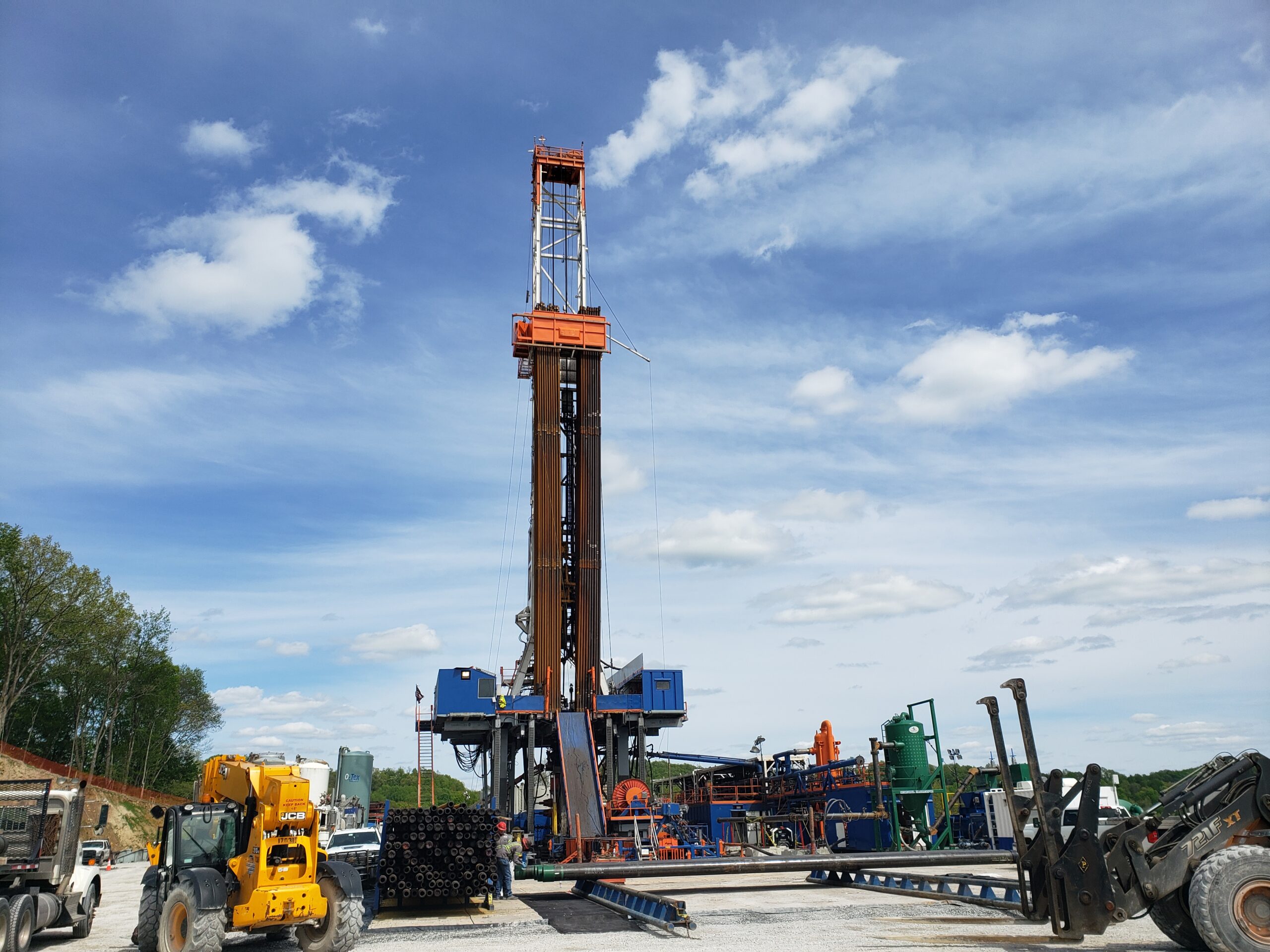MORGANTOWN – GO-WV – the Gas & Oil Association of West Virginia – celebrated its first anniversary during its winter meeting this week, and welcomed comments delivered by Sens. Joe Manchin and Shelley Moore Capito, and by Rep. David McKinley.
GO-WV is the name for the organization that resulted from the union of the Independent Oil and Gas Association-West Virginia and the West Virginia Oil & Natural Gas Association. The meeting took place in Charleston.
Executive Directory Charlie Burd said the organization was determined to have an in-person winter meeting and they were please to see nearly 225 people attend, along with various presenters.
All three lawmakers, particularly Manchin and McKinley, have consistently acknowledged climate change but have advocated against a precipitous movement from fossil fuels, advocating for a technology-driven – not politically driven – transition to green energy.
Both have advocated for more federally subsidized carbon capture and storage (CCUS) research, in ordered to keep reducing fossil fuel greenhouse emissions but also to use the technology to leverage such places as China and India, both of which are expanding their coal-power portfolios and their growing their greenhouse gas emissions.
Manchin participated via Zoom and told the members, “You can’t eliminate your way to a cleaner environment. You can innovate your way into a cleaner environment.” Referring to ongoing research at the National Energy Technology Laboratory and WVU, he said, “West Virginia can be a leader in that technology and the manufacturing of that technology.”
McKinley, in video comments said, “The reality is West Virginia is a leading energy producer – top five in the country. The Appalachian basin alone was the third-largest global producer of natural gas for most of last year. … We will lead the way to restoring our energy dominance and energy independence in America.”
Manchin expressed his pleasure that the Bipartisan Infrastructure Bill – supported by all three but not by West Virginia’s other two members of Congress – contains money for orphan gas well capping. “We have $4.7 billion going out to plug and mediate orphan wells, that’s going to be a game changer for West Virginia.”
Capito also offered video remarks, hitting the same topics as her colleagues. “As our natural gas production and use has gone up, our country’s overall greenhouse emissions have also gone down significantly,” she said.
On BIP, she commented, “Congress pulled together and made a significant investment in our nation’s infrastructure with the bipartisan infrastructure investment and jobs act. These investments recognize the important role natural gas plays now and in the future of our energy sector and economy.”
She’s concerned, she said, that Build Back Better – which died in December but may come back in pieces, according to President Biden – has a proposed methane fee. “This methane fee should really be called a natural gas tax because that’s what it is. This would increase energy costs for American families and small businesses, disproportionately impacting middle and low-income households.”
Asked for some perspective on the oil and gas industry for 2022, Burd said, “We’re seeing an uptick in drilling.” And West Virginia now has more active rigs than its two neighbors: 11 here, nine each in Ohio and Pennsylvania.
“I think that’s pretty indicative of what we sort of expected to see coming out of the pandemic as businesses stat to retool, rehire and gear back up.” The restarting creates the need for more power, natural gas and liquids. “As the demand increases for both electricity and natural gas, you see the industry stepping up.”
Pipelines are needed to get the gas to market. While the industry still feels the disappointment of the loss of the Atlantic Coast Pipeline, he said, Mountain Valley continues to inch forward. “We’re very supportive of that and we want them to.”
Burd’s office added on background that GO-WV is optimistic that Mountain Valley is supposed to come online this year, and it will bring natural gas from West Virginia to the Southeast and Virginia markets.
The other leg of the market stool Burd said, is production that gets piped shipped to Maryland to be liquefied and then shipped to allies around the world. “Our ability to supply to those type of liquid demands is very essential for the world right now.”
Tweet David Beard @dbeardtdp Email dbeard@dominionpost.com




